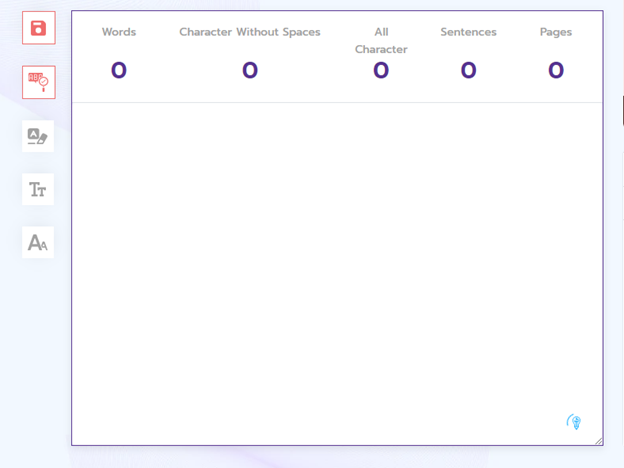Every writer has to start somewhere. In this article, you will get advice on how you can establish your writing goals and get going on your writing journey.
Writing goal is the number of words you will write every day. You can also set daily, weekly, and even monthly writing goals.
So how many words should you aim to write every day? This will depend on the type of project you're working on and how much time you have available. While there may not be a perfect answer (we are all individuals, after all, with different writing skills), there are some guidelines that you can follow.

One of the best ways to build a writing habit is to set writing goals for yourself. There are a lot of different places where you can start with this, but one of the best things you can do is establish a word count goal for yourself. This will help you select a routine and manage your time, which is important if you want to keep up with your writing habit.
Daily word count guidelines:
If you're aiming for a word count goal, it may be helpful to understand what kind of word count consists of what types of projects:
500 words = short blog post or article
1,000 words = longer blog post or article
5,000 words = short eBook or print book chapter
You can start with 300 or 500 words a day and then gradually increase your daily word count depending upon the nature of your writing task
7 Habits for writers to achieve their word count goals
Writers, it's easy to get overwhelmed by the number of words you're required to write for a piece. Whether writing a blog post or a full-length book, getting the words out can feel like a daunting task.
And, once you do get started, it can be difficult to keep going through writer's block and just general exhaustion from keeping up with your word count. That's why we've put together seven habits to help you achieve your word count goals:
Write every day
When it comes to writing, you have to put in the time to be a success. It doesn't matter if you're a journalist by profession or like to write for fun - you won't get anywhere unless you commit to putting pen to paper (or finger to keyboard) every day.
Try to spend some time writing about your favorite topics. You can make a schedule for the whole week if you struggle to come up with ideas. If you remain busy during day hours, try to set aside some time at night to get your ideas out on a document.
Write for at least one hour
Writing for an hour is a good chunk of time to keep yourself focused on your work and not distracted. Of course, you might find that as you get into the groove, you can go longer than one hour and keep working productively well past that point, but it's important to set at least that minimum amount of time, so you don't get derailed by other obligations.
Use a word counter tool
Use a word counter tool to track the exact number of words you type every day. Copy the text and paste it into the assigned area if you already have a document. The tool will let you know how many words, sentences, paragraph, and even character you have written that day.
This way, you will be able to keep track of your daily productivity. For instance, one day, you have written 300 words. You can go the extra mile and increase your word count to 400 or even more the next day. The word counter tool always helps keep track of your progress.
Don't worry about quality or editing right away
The best way to produce lots of words is to write them. If you want to hit your word count goal, there's no need to stop and agonize over how perfect every sentence is; all that matters are getting your thoughts down on the page.
Even if you're writing prose or poetry, it's better if you don't even worry about proper sentence structure or grammar rules - just let whatever wants to come out – come out.
Anyone who has ever tried to write a book knows that word counts can be tricky. Maybe you're in the habit of procrastinating, or perhaps you just get distracted -
but making sure you're getting your full daily word count down can be an uphill battle under the best circumstances. If you're struggling to reach your writing goals, then focus on your writing to improve your work ethic and maximize your time.
Eat a full breakfast
Getting a good, hearty meal in before you begin writing is one of the best ways to fuel your creativity. That's because healthy food choices give you the energy and focus that you need to sustain productivity. For example, if you eat a large breakfast with whole grains, protein, and fruit, then you'll feel full and satisfied for longer, without any distracting hunger pangs that might disrupt your workflow. If you want to make sure your brain is firing on all cylinders, then don't skip out on this important step.
Get comfortable
One of the most common mistakes that people make when they sit down to write is not paying enough attention to their posture or surroundings. For example, if you've got a laptop propped up on an uncomfortable chair with poor lighting and no cushioning for your wrists, you won't be able to allow your creativity to come out in the form of words.
That's why you have to feel comfortable while writing so that your mind can work at its peak level and throw ideas smoothly. To get things to work in your favor, get a comfortable chair and place your desk next to the window from where you can breathe in the fresh air and enjoy natural light.
Take short breaks
Now, this may sound a little irrelevant to some people – but this has a great impact on achieving your writing goals. Taking short breaks allows your mind and body to feel relaxed. You can't stay focused on writing consecutively for several hours. That's why you have to stand up and move.
If you are at home, try moving to a balcony with a cup of hot coffee in your hand. Take a deep breath and enjoy your sips. A ten-minute break can revitalize your mind and soul. You should come back to your writing desk in full swing after taking a relaxing break.
- Johanna Schmitt




Leave Comment